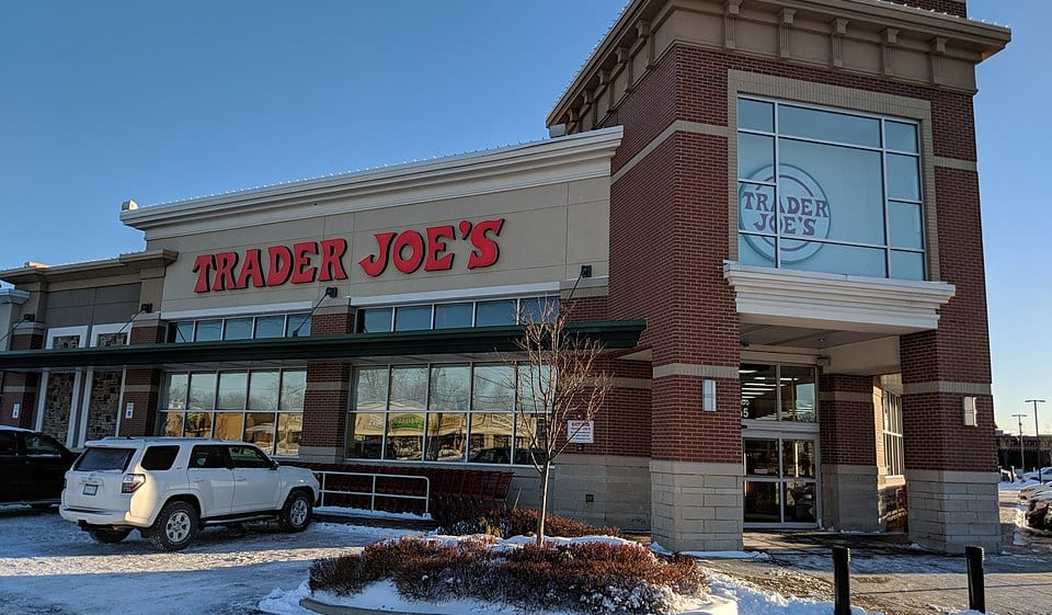The J.M. Smucker Company is suing grocery chain Trader Joe's in what is the latest salvo from big food processors targeting huge grocery chains like Kroger's, Walmart, and Target for trademark infringement.
According to the Wall Street Journal, "store brand" selections at large grocery chains now account for 20% of total store sales. Lower-priced store brands become more attractive as food prices continue to be uncomfortably high. Grocery chains respond by copying more popular products and selling them under their own brand.
The food processors cry "Trademark!" In the case of Smucker vs. Trader Joe's, the latter started stocking a product last summer, which they called "Trader Joe's Crustless Peanut Butter and Strawberry Jam Sandwiches."
It had more than a passing similarity to Smucker's "Uncrustables Peanut Butter and Strawberry Jam Sandwich." The Trader Joe's product was a frozen, circular concoction with peanut butter and strawberry jam in the middle. Smucker thought the circular design was a trademark infringement.
Smucker sues Trader Joes over ‘crustless’ PB&J sandwiches which resemble iconic Uncrustables https://t.co/LP93KdB5Z9 pic.twitter.com/guvtIpfP8S
— New York Post (@nypost) October 15, 2025
“Our focus is solely on protecting the unique trademarked design that represents the high quality associated with the Uncrustables brand and preventing consumer confusion caused by imitation," a Smucker spokesman said.
Smuckers has sued to protect Uncrustables before. In 2020, they sued Los Angeles-based Chubby Snacks over the same issue for their PB&J frozen concoction. Chubby changed its product to the shape of clouds.
But this is the tip of the iceberg. Sales of store-brand labeled products are growing at a rate of 3.9% a year. “It’s the standard situation where somebody sees that there’s a competitor with a rising market share," said Diane Covello, co-director of the Intellectual Property and Entrepreneurship Law Clinic at the University of Connecticut.
Mondelez International, maker of Oreo cookies, Cadbury Chocolates, and other treats, is suing discount grocer Aldi, "alleging that the chain was deceiving customers via store-brand cookies and crackers that copied the packaging of some of Mondelez’s signature snacks," according to the Journal.
I think Mondelez has a point.
@Oreo maker sues Aldi in US court over lookalike cookie packaging as legal tensions rise in the snack aisle #OreoVsAldi #CookieBattle #TrademarkDispute #SnackWars #LegalDrama
— Daily Tuesday (@dailytuesdayuk) June 4, 2025
Read more: https://t.co/bQsTq3KeDd pic.twitter.com/zhxCv7t3ms
Private-label products have proliferated across supermarkets and big-box stores over the decades and now range from Greek yogurt to bacon. Breakfast syrups, dog food and meat alternatives were recently among the categories with the largest private-label share gains, according to analysts at Jefferies.
Susan Morris, chief executive of supermarket operator Albertsons, said on a conference call this month that more shoppers are seeking store brands as a way to save money. “What we’ve seen from the consumer is a continued focus on value, a shift to trading down,” she said.
Kraft Heinz, McCormick and Smucker are among the food companies that recently have been most exposed to incursions from store brands, according to Wall Street analysts. Others, such as chocolate maker Hershey, have said that they are stepping up innovation as they compete for supermarket shelf space.
McCormick said its branded products are performing well, outpacing private-label counterparts by volume. Kraft Heinz didn’t immediately comment.
“We’ve had generations, baby boomers and older, who really looked at private brands as a second-rate item,” said grocery consultant Phil Lempert. “It doesn’t have a stigma with Gen Z or millennials at all.”
I had a definite bias against private-brand products, especially paper goods and cleaning products. I still think "off-brand" toilet paper is a step above sandpaper.
On the other hand, I am buying more and more Walmart and Kroger brand food products. Kroger's "Private Select" light rye pan bread is superb, as is Walmart's (Great Value) 1% cottage cheese.
Related: It's an 'Energy Wild West' As the AI Boom Forces Tech Companies to Build Their Own Power Plants
I understand the purpose of these lawsuits, but it seems to me it's something akin to the little Dutch boy putting his finger in the dike to keep the water out. It's a losing proposition. Perhaps the solution for private label giants is to make better products and sell them at a more competitive price.
Is that really asking too much?










